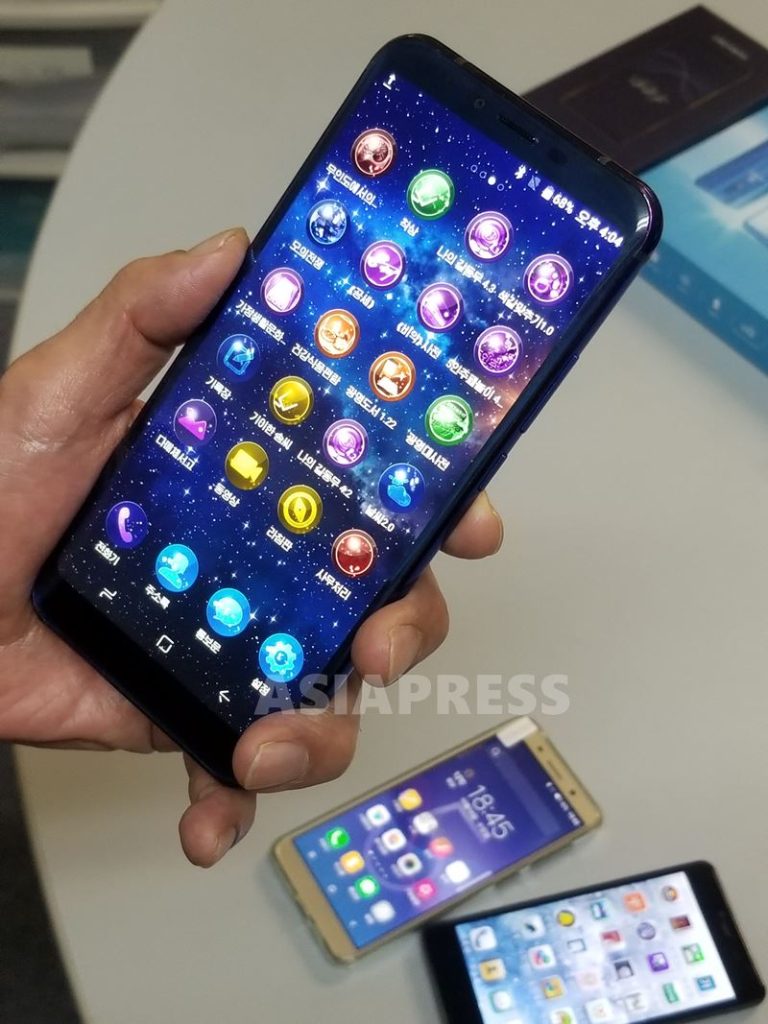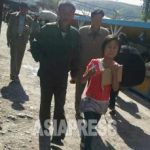
North Korean authorities have issued the so-called "April 27 Directive," which punishes individuals for distributing self-made videos on cell phones and computers. According to an ASIAPRESS reporting partner, the directive condemns the making and distributing videos without state approval as non-socialism, and warns of severe punishment for both the creators and distributors of video content. (JEON Sung-jun / KANG Ji-won)
◆ Creation and dissemination of videos considered “non-socialist behavior”
A reporting partner living in the northern region of North Korea said the "4.27 Directive" was issued at a neighborhood watch unit meeting in early May.
"We were told to report cases of photographers and computer experts editing and distributing videos using editors imported from China, and especially young people making videos of themselves dancing, singing, or learning guitar, which are considered non-socialist acts."
Until now, North Korean authorities have strongly cracked down on and punished the dissemination and viewing of South Korean or foreign content, especially with the enactment of the Anti-Reactionary Thought Law in December 2020. The maximum penalty stipulated by that law is death.
Domestically produced videos have also been criminalized, but what triggered this recent directive? The reporting partner explained:
"It started when students in Pyongyang were caught filming and showing each other how to date and how to kiss, among other things. Even educational materials that are useful for everyday life, such as how to speak in a relationship (language etiquette) and how to use honorifics, are subject to the crackdown." The reporting partner complained that even domestic videos that he thought were completely innocuous were subject to government ire.
◆ The authorities intensify crackdowns, conducting surprise inspections through neighborhood watch units to identify problematic video content
The authorities are also cracking down on independently produced videos and publications, the reporting partner said.
"If you have a phone, they take it away and test it, and if you make a call on the street, they look at the phone before anything else," he said. "There are random computer checks by neighborhood watch units, and because of that, there are constant checks at places like photo studios, libraries, and e-communication service centers (specialty stores that sell telecommunications products like phones and apps)."

But the authorities are facing difficulties in cracking down on these illegal activities because of how videos are created and distributed.
"They're cracking down on videos that are made by individuals who don't get them from Gildongmu (North Korea's navigation app) or the official intranet, but they're also trying to identify videos that are made and edited by individuals. Because phones don't have a lot of capacity, people can only save and watch short videos. And that’s a problem for the authorities."
Following crackdowns on content made outside of the country, North Korean authorities are now cracking down on videos made domestically. This is a sign of the Kim Jong-un regime's intention to both prevent the inflow of outside information and tightly manage internal information and public opinion.
※ ASIAPRESS communicates with its reporting partners through Chinese cell phones smuggled into North Korea.
- <Inside N. Korea>Farm mobilizations in full swing across the country…State-run stores and markets operating shorter hours Rations are provided to those mobilized people
- <Inside N. Korea>Chinese RMB exchange rate surges, up 42.8% since start of year...National police agency warns individuals and businesses against using foreign currencies
- <Inside N. Korea>Recruitment for the world's longest military service(1) This year 8 years for men, 5 years for women
- <Investigation>Why aren’t North Korea’s women having babies anymore? (1) The fertility rate is already severely low…It’s rare to see anyone carrying babies around
- <Inside N. Korea> Overseas worker deployments accelerate, some leave within a month...There’s a surge in applicants amid hardship

























